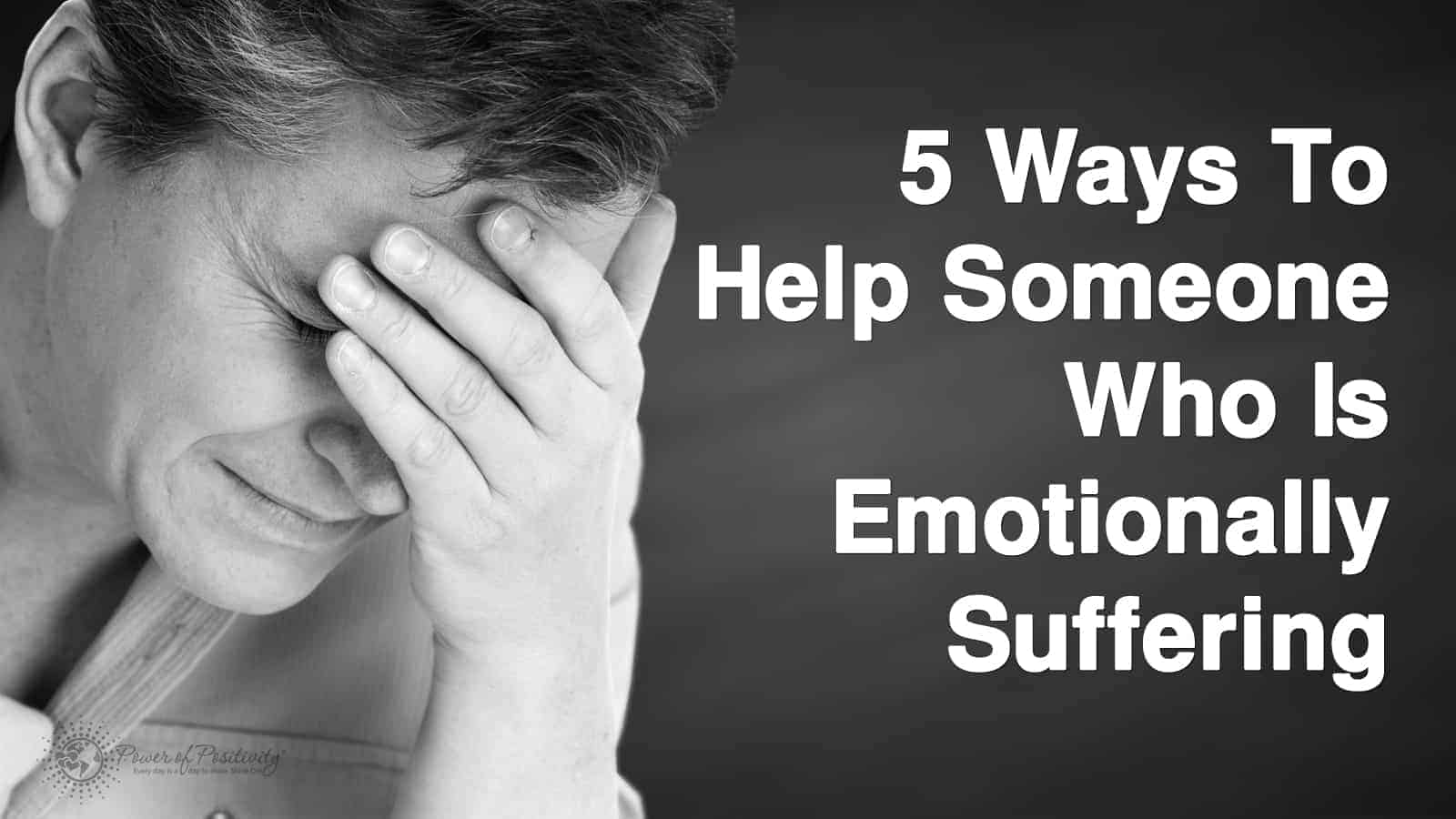Emotional suffering is part of our lives. We live in the duality of happiness and sad, dark and light, balance and imbalance. We cannot escape the disruption of events that happen throughout the journey. Without the pain, how could we find joy? There is an old Buddhist proverb that says, “Pain is inevitable, suffering is optional.” Unfortunately, while you are in the turmoil of suffering emotionally, it’s very hard to see this. We are filled with dread and desperation. The sadness takes over and sometimes we just need a helping hand.
Here are 5 ways to help someone who is suffering emotionally:
1. Reach out in a loving manner.
While we are in a black hole of depression or anxiety, we do not see light. The last thing you want to do is tell another person who is in pain to not be in pain. The first step to helping someone is to eliminate judgment and criticism. Just because you see things differently, it doesn’t allow them to see it with your senses. Allow that person to know they are loved. They are cherished. Get them help through a therapist or just speaking about the issues.
Oftentimes, the one thing that they think is the cause of the pain is not the real issue. Emotions mask other events. A volcano of feelings begin to surface. They hide deep in the mind. Don’t push this person too quickly. Don’t pull them to “snap out of it.” Just be there as a lifeline and allow that person to reach that rope. Feeling secure is a beautiful token of appreciation. Do not take over. Do not try to control the situation.
2. Laugh.
Laughter is one of the greatest healers. Making light of the situation is helpful in distracting the pain. Provide that person with time to find joy. Ask them to join you in watching a funny film. Go watch kids play in a park. Tell stories of happy moments in the past. Reminding that person of better times helps to jolt the senses. This is not going to last forever.
An article from the Mayo Clinic states that laughter has amazing short and long term effects. “It simulates many organs; activates and relieves stress response; soothes tension; improve immune system; relieve pain; and increase personal satisfaction.”
3. Join them in a healthy cry.
Being vulnerable is one of the hardest things in our lives. It’s hard to show the rawness of who we are. Helping that person release those tears is an emotional discharge. To witness another fully exposed in their humanness helps them to feel they are not alone. Share experiences. Console them without stopping the emotions from overflowing. You are not there to solve the problem.
Research from the University of South Florida by psychologists Jonathan Rottenberg and Lauren M. Bylsma found that,”the majority of respondents (out of 3,000 people) reported improvements in their mood following a bout of crying.” Allowing someone to release is a way of providing support. This gives time for the grieving to take place. Every release allows for a new beginning.
4. Go outdoors.
Being outside in the sun helps the body generate vitamins. Taking a walk, a short hike, or just sitting on the grass helps us feel hopeful. Nature is the greatest medicine for depression. It forces you out of the doom of a house. Gentle activities help increase hormones to the brain. According to a study in the University of Michigan, nature walks enhance mental health and positivity. Being outdoors helps improve your outlook, focusing abilities, and help strengthen your immune system. This is called “Ecotherapy” and it is the most natural way of readjusting your attitude. In recent studies, ecotherapy has helped people with mental illnesses get off pharmaceutical drugs and heal from simply being outdoors.
5. Help them forgive.
Forgiveness is rarely for the person who caused us pain. Forgiving means letting go of the resentment, anger, and pain. It’s a gift we give to the self. Allowing this person to share and release is part of the process. Everything that happens to us serves as a lesson in our path. It’s not easy to forgive, but the alternative is an induced lifelong punishment that stumps our growth. Motivational speaker and author, Steve Maraboli says,“The truth is, unless you let go, unless you forgive yourself, unless you forgive the situation, unless you realize that the situation is over, you cannot move forward.”
It’s difficult to witness a loved one going through an emotional crisis. Remember to be kind, gentle and compassionate with those who are hurt. It’s important to remind them they are worthy. The greatest gift you can provide another is the feeling of being loved, acknowledged and heard.
Related article: How To Release Attachments To Emotional Wounds

















